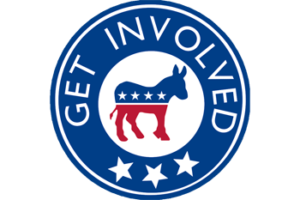To the Editor:
I distinctly remember sitting at the dinner table as a little boy listening to my parents discuss the latest political news. They would go back and forth about everything from healthcare to the War in Iraq, from our state taxes to education, from basic human rights to what Wilton’s brand could be.
These dinnertime conversations shaped the way I thought about politics and how you discuss politics; friends gathering around a table and hearing each other out, disagreeing on some things, but finding common ground on others. They listened intently to each other, clarified issues, and processed without ever belittling, denigrating or dismissing anyone with a disparaging remark. If dialogue stalled, they returned to the problem they wanted to solve–common ground–to find another way forward. Though of different political parties, there were no labels or sides apparent—just people putting their collective thoughts and ideas together to explore solutions.
My earliest political memory was listening to President-elect Obama’s victory speech in 2008. His speech was a call to action for people across the country to work hand-in-hand, Democrat, Republican, Independent and unaffiliated, folks of all different looks and backgrounds, to solve our nation’s most pressing issues together. Politics seemed challenging, but an arena where smart minds came together to find solutions for the common good.
Nearly 11 years later, I’m not the only thing that’s changed drastically. Now a 19-year-old, I appear to be living in a world where friends can’t even discuss the simplest political issues together for fear of sparking a heated, personal debate or worse. I graduated high school in 2018 and instead of going directly to college, I decided to take a gap year because I couldn’t possibly sit on the sidelines and watch the course of our future be decided like that, right in front of me.
That summer I was introduced to Will Haskell. The first time I spoke with Senator Haskell was in a car ride over to an event. After introducing ourselves, his first question was, “What’s the most important issue for you?” Not, “Hey, here are my opinions, make sure you stick to the script.” Not, “I disagree with Senator Boucher on all of these points.” No, instead, he was someone who wanted to hear about the problems, learn from constituents, get their thoughts and represent their voices.
I went door to door with Will Haskell and spoke to everyone, not just people with whom we agreed. When I had differences with someone, we spoke until we could find some common ground, even if that was simply clarifying the problem that needs to be solved. In these conversations I found myself in an environment similar to that at our dinner table.
As I listen to people argue about issues like gun control or read Op-Eds attacking our legislators on issues like tolls, I wonder how we can possibly begin to craft our opinions without first accepting that all issues have varying perspectives. My father taught me that there are very few issues that are black and white. The vast majority are in the gray.
I can’t help but think of the late John McCain whose passing will be recognized this month. I disagreed with the late Senator on nearly every issue but I never once doubted his integrity, his conviction or his dignity. He consistently listened to everyone to determine what he felt was the right course forward. He put what he believed was the right thing to do to solve a problem over pure politics.
I happen to believe tolls are necessary to help address our state’s financial difficulties so that we can invest to attract millennials and to keep folks like myself living here. Being the only state in-between North Carolina and Maine not asking drivers to contribute to our crumbling infrastructure certainly is of no particular advantage to us, and much more likely a detriment. But I also understand the concerns of community members who may struggle to afford this new burden, even if we minimize it for our community. While nobody “wants” tolls, I believe we can find a happy medium in enforcing this user fee by using smart technology to charge out-of-state drivers a premium.
Switching to gun control, I don’t think we are talking about a Democrat or Republican issue. We’re talking about stopping gun related tragedies. I am convinced there are solutions that can reduce gun violence without imperiling the 2nd Amendment, but these solutions will never be agreed on if we continue down the road of mistrust and polarization.
I encourage all community members to support those candidates who listen and consider deeply the input they receive, who listen to you no matter what side of the aisle you’re on and positively engage the community. From town halls in Wilton, to marches in Florida, I see young people across this country stepping off the sidelines and engaging in politics. One day the future of our society will fall into the hands of young folks such as myself. I can only hope we set a good example for future generations so my children and my children’s children can live in a more interconnected, united society than we live in now. It was a great Republican leader who once said, “A house divided against itself cannot stand.”
Stephen Blinder
Stephen Blinder is a member of the Wilton Democratic Town Committee








